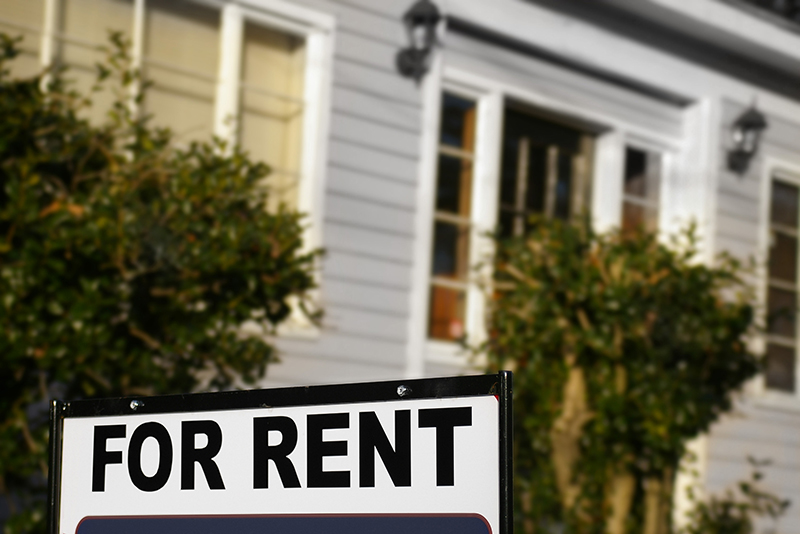
Many challenges come with owning residential real estate in Ohio. Knowing what your responsibilities are, as well as the responsibilities of any prospective tenants, is essential to your success as a landlord. Ohio landlord-tenant law is divided into two parts. First, let’s discuss the obligations of the landlord.
Landlord Responsibilities:
- Keep the property in livable condition.
- Keep the common areas clean and safe.
- Comply with building, housing, health, and safety codes.
- Keep all electrical, plumbing, heating, and ventilation equipment in good working order.
- Maintain all appliances and equipment supplied by the landlord.
- Provide running water, hot water, and heat (unless the hot water and heat are controlled entirely by the tenant and supplied by a direct public utility hook-up).
- Provide garbage cans and trash removal (if the landlord owns four or more residential units in the same building).
- Give at least 24 hours notice, unless it is an emergency, before entering a tenant’s unit, and enter only at reasonable times and in a reasonable manner.
- Evict the tenant when informed by a law enforcement officer of drug activity by the tenant, a member of the tenant’s household, or a guest of the tenant occurring in or otherwise connected with the tenant’s premises.
Although a landlord has their responsibilities and obligations, a tenant has responsibilities as well:
Tenant Obligations:
- Keep the property clean and safe.
- Properly dispose of rubbish.
- Keep the plumbing fixtures as clean as their condition permits.
- Use electrical and plumbing fixtures properly.
- Comply with housing, health, and safety codes that apply to tenants.
- Refrain from damaging the property and keep guests from causing damage.
- Maintain appliances supplied by the landlord in good working order.
- Conduct themselves in a manner that does not disturb neighbors and requires guests to do the same.
- Permit the landlord to enter the dwelling unit if the request is reasonable and proper notice is given.
- Comply with state or municipal drug laws concerning the property and require household members and guests to do the same.
Obligations Under Federal Law:
There are also duties imposed on landlords at the federal level. A landlord is responsible for complying with the Fair Housing Act at the federal level. The Fair Housing Act protects people from discrimination when renting or buying a home, getting a mortgage, seeking housing assistance, or engaging in other housing-related activities.
Pursuant to the Act, it is illegal discrimination to take any of the following actions because of race, color, religion, sex (including gender identity and sexual orientation), disability, familial status, or national origin:
- Refuse to rent or sell housing.
- Refuse to negotiate for housing.
- Otherwise, make housing unavailable.
- Set different terms, conditions, or privileges for the sale or rental of a dwelling.
- Provide a person with different housing services or facilities.
- Falsely deny that housing is available for inspection, sale, or rental.
- Make, print, or publish any notice, statement, or advertisement concerning the sale or rental of a dwelling that indicates any preference, limitation, or discrimination.
- Impose different sales prices or rental charges for the sale or rental of a dwelling.
- Use different qualification criteria, applications, or sale or rental standards or procedures, such as income standards, application requirements, application fees, credit analyses, sale or rental approval procedures, or other requirements.
- Evict a tenant or a tenant’s guest.
- Harass a person.
- Fail or delay performance of maintenance or repairs.
- Limit privileges, services, or facilities of a dwelling.
- Discourage the purchase or rental of a dwelling.
- Assign a person to a particular building or neighborhood or section of a building or neighborhood.
- For-profit, persuade, or try to persuade, homeowners to sell their homes by suggesting that people of a particular protected characteristic are about to move into the neighborhood (blockbusting).
- Refuse to provide or discriminate in the terms or conditions of homeowners insurance because of the race, color, religion, sex (including gender identity and sexual orientation), disability, familial status, or national origin of the owner and/or occupants of a dwelling.
- Deny access to or membership in any multiple listing service or real estate brokers’ organization.
Some municipalities in Ohio, such as Columbus, have even more things that landlords should consider and be aware of, such as source of income discrimination protections, renter’s choice, and the rental receipt obligation.
Source of Income Discrimination – Landlords are prohibited from denying prospective tenants based upon their lawful source of income, including but not limited to income derived from wages, social security, supplemental security income, public or private sources, all forms of federal, state or local assistance payments or subsidies, including rent vouchers, child support, spousal support, and public assistance.
Renter’s Choice – If a landlord requires a tenant to pay a security deposit, they must provide two alternatives to paying the deposit in full, including paying the security deposit over a series of 3 monthly installments or the security deposit amount in 6 monthly installments.
Rental Receipt – Landlords must provide tenants with a written receipt upon payment of rent or a security deposit.
When thinking about renting to a prospective tenant, it is essential that you take the time to review your responsibilities and obligations before you begin a landlord-tenant relationship. It is best to consult a lawyer before drafting a lease agreement to ensure that you have proper guidance before embarking on your landlord-tenant journey.

